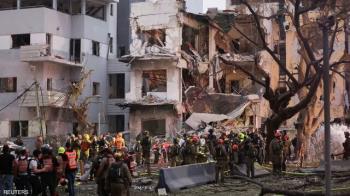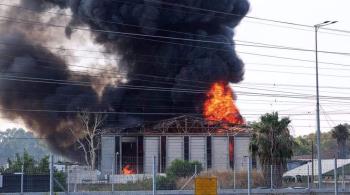Alwaght- The wave of events known as the Islamic Awakening which began in 2011 in Tunisia and Egypt and resulted in collapse of oppressive regimes in some countries of the North Africa and the West Asia drew the attention and support of the Islamic Republic of Iran. However, the uprising of Bahrain's Shiite majority was important for Iran for a variety of reasons. Unlike other Muslim countries where the Islamic Awakening resulted in the fall of governments, Bahrain revolution was born under special circumstances and under the same conditions the revolution has not been successful and failed to achieve its goals.
In fact, from the initial days, Bahrain revolutionaries were faced with difficulties and obstacles which have persisted over the past five years:
1. Severe and deliberate oppression: the uprising of the Bahrain began in a particular period following the critical situations in other Arab countries such as Tunisia, Egypt, Syria, and Libya. The experience of revolutionary developments in these countries had alarmed the rulers of countries in the southern part of the Persian Gulf about any similar developments in their countries and the bell had rung for them. Panic created by events in North Africa made the rulers of the emirates of the Persian Gulf adopt a unified policy of "oppression". The brutal suppression of the revolutionaries, changing the political protests to critical security issues, and the anti-riot forces known as the "Island Shield" who crushed the Bahrain revolution prevented the success of the revolution.
2. Restriction of the revolution to an Arab environment and collaboration of the world powers with Arab rulers:
From the perspective of political geography, Bahrain is surrounded by Arab countries except Iran. The geo-political and security environment of Bahrain is fully under control and management of regional rulers; besides, governments and trans-regional forces were basically involved in Bahrain unrest and revolution. Countries and regional powers that are present in this region have adopted some policies in line with the policies of the regional governments to suppress the revolution in Bahrain. For example, the US as an important factor of instability and tension adopted two different positions on revolutions in Bahrain and Libya, and a country like Russia, as the opponent of the US, did not have enough infiltration in Bahrain. In other words, countries and governments influential in Bahrain did not have conflicting interests that could be a ground for protection from the revolutionaries by a number of countries. Bahraini revolutionaries did not receive any considerable support from countries of the world either with respect to media coverage or political support or equipment (except Iran that just provided political and media support for Bahrain revolution) and that is what has made it easy for the House of Al-Khalifa and the House of Saud to implement the policies of oppression.
3. Revolution in light of regional competition: one can proclaim that Bahrain revolution, unlike other revolutions in Libya, Syria, Egypt and Tunisia have never received any serious attention and support from the international community or the world media. Besides, the intensity and type of media repression and prevailing security environment in the country prevented the change of the subject into a transnational issue of significant importance at regional and international level. Part of the issue has to do with the regional polarization between the resistance and the compromise. Bahrain developments, from the perspective of their Arab rulers and regional supporters is defined in the context of opposition to the infiltration of Iran into the region. Considering the Shiite majority in Bahrain and Iran's support for the popular protests in Bahrain, one can have a good insight into the importance of the issue for the leaders of the Arab World, the US and the West.
4. Silent Revolution: Considering the media coverage and public opinion’s attention, Bahrain revolution has remained totally unknown. This is by no means accidental, on the contrary it was deliberately boycotted by the media empires of the West and the Arab world. Even the United Nations and its relevant agencies and human rights groups have not been paying enough attention to developments in Bahrain. Part of the issue in rooted in the interests of the US and the West and their collaboration with the Arab states, and parts of the issue could be analyzed in the framework of macro-regional developments. The West Asia is awash with crises such as ISIS, the Taliban, Iraq, Syria, etc. As a matter of fact, the larger conflicts in the region and the world have overshadowed the Bahraini revolution, and has not found any particular opportunities to emerge at the global level.


























